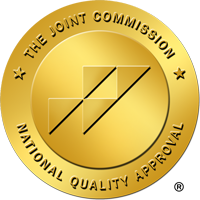Studies consistently show that rehab is the most effective way to move on from substance abuse.
But with multiple types of rehab to choose from, how do you know which is best for you? For example, many patients have to decide between inpatient and outpatient forms of care.
At Tru Dallas Detox & Recovery, we offer personalized rehab plans in inpatient and outpatient settings. This page will help you understand how outpatient care works, what to expect, and tips for choosing between it and alternative forms of treatment.
What Is Outpatient Rehab?
Rehab is a one-to-three month experience where you’ll receive intensive treatment for substance abuse. You can complete that treatment while living in a recovery center full-time (inpatient) or at home (outpatient).
Both forms of rehab give you access to the same forms of treatment. The key difference is the setting they take place in, which gives each option some unique advantages and disadvantages.
For example, outpatient rehab is more flexible but can also leave the door open to relapse. Inpatient care is more strict and expensive, but the structure may significantly reduce your odds of relapsing.
What To Expect From Your Outpatient Treatment Plan
At Tru Dallas, our outpatient programs feature each of the following forms of care. Your team will use all three to help you move on from substance abuse in different ways.
1-on-1 Therapy Sessions
First, your core outpatient treatment experience will be 1-on-1 therapy sessions. This is an opportunity to work with an expert practitioner who specializes in beating addiction. They can help you explore the root causes of your condition and develop healthier strategies for coping with the challenges life throws your way.
Therapy is where you’ll lay the foundation for the sober life you’re trying to create. The more honest and open you can be throughout the process, the faster you’ll make progress toward your long-term goals.
Group Meetings
Next, you’ll participate in group meetings with other people who are going through treatment. This is an opportunity to tell your story and learn from the experiences of others. You’ll benefit from the social support, learn new strategies for coping, and develop relationships rooted in sobriety.
Holistic Healing Services
Finally, your outpatient program will include various holistic healing services. These are designed to unite the mind, body, and spirit in the recovery process. Studies consistently show that this helps patients get more value out of treatment, so we make them a foundational pillar of our patient plans.
Choosing Between Outpatient and Inpatient Care
Deciding between inpatient and outpatient substance abuse treatment isn’t always easy. If you’re having a hard time doing it, consider contacting one of our addiction specialists. They can walk you through your options, listen to your story, and make a personalized care recommendation based on your unique needs.
If you want to get a head start on that process, you can start by asking yourself the following questions.
What’s your home environment like?
The first question to ask yourself is whether you live in a home that will support your sobriety. If you do, outpatient care could be a good fit. Your chances of relapse could be lower because you’re surrounded by people who care about your recovery.
The same isn’t true for those who live in homes that contribute to their addiction problems. Going home to sleep in that environment at night could significantly increase your chances of relapsing.
Do you have a history of relapsing?
Another question to consider is your previous experiences in recovery. You may have tried outpatient plans in the past and failed to beat your addiction. If so, that could be a sign that you need a more strict form of treatment, like an inpatient program.
You know yourself better than anyone, but it’s important to be honest about what you need. You may also want to ask close friends or family members their opinions to see if outpatient care could work for you.
How good is your insurance?
Finally, cost differences between inpatient and outpatient care could also factor into your decision-making process. Inpatient treatment tends to cost more because you move into a treatment center and live there full-time. With outpatient care, you don’t have to pay for lodging in addition to treatment.
However, your insurance may cover a large percentage of the costs for your chosen plan. That’s why it’s worth contacting Tru Dallas directly. We can evaluate your coverage and help you compare out-of-pocket costs for the plans you’re considering.
Outpatient Substance Abuse Treatment FAQs
How long does outpatient treatment last?
You should expect to spend between one and three months in outpatient substance abuse treatment. The exact amount of time will depend on factors like your recovery needs, how quickly you respond to the care you receive, and more.
What will I do during outpatient rehab?
Your time in outpatient rehab will be split between a few forms of care. The most important types of treatment you’ll receive are 1-on-1 therapy and group meetings. Each of these will help you understand and move on from the root problems that have been causing your substance abuse.
How do I pay for outpatient treatment for substance abuse?
Most people use their health insurance to pay for substance abuse treatment. Your plan may cover a large percentage of your costs, but it can vary from policy to policy. If you want a more personalized answer, contact us directly with your insurance details.
Take the First Step with Tru Dallas Detox & Recovery Center
Regardless of whether you ultimately decide on an inpatient or outpatient treatment plan, the most important thing is that you start. The sooner you seek professional help for substance abuse, the faster you can move on from addiction.
So, why not get started today?
The addiction specialists at Tru Dallas are standing by to take your call, answer your questions, and verify your insurance. Give us a call today to learn more about how we can help you heal.

